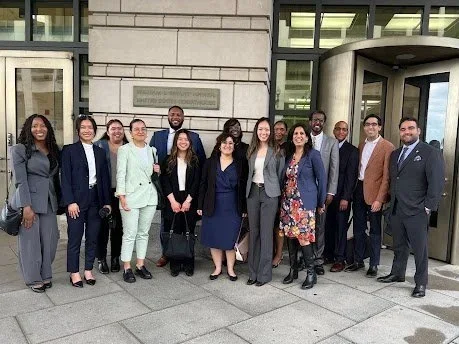What is the appellate system?
Understanding the appellate system—and who holds power within it—is key to understanding its impact on our communities.
What is at stake in appellate rulings?
Appellate decisions shape nearly every aspect of public life. A single ruling can affect millions of people and set precedent for decades. Yet this system often operates out of public view, governed by complex procedures and traditions that can make it difficult to access or even understand.
While the U.S. Supreme Court is the highest appellate court, it hears less than 2% of the cases it is asked to review. This means that in 98% of appeals, lower appellate courts have the final say.
How do appellate courts work?
Appellate courts, at both the state and federal levels, review decisions made by lower (trial) courts. Their rulings shape how future cases are decided and how laws and rights are interpreted.
These decisions are made without juries, often by judges with lifetime appointments, giving them long-term influence over how the law is applied.
A small, powerful group of appellate attorneys plays an outsized role in deciding which cases to bring forward and how legal strategies evolve over time. Many go on to become judges, solicitors general, or other legal leaders whose decisions shape the law for generations.
For most litigants, appellate courts are the last opportunity to right a wrong. This makes it all the more critical that the judges and advocates in these spaces reflect the communities they serve.
Each appellate court has wide geographic reach and influence.
A ruling from one federal circuit court sets binding precedent for all states within that circuit, and a ruling by a state’s supreme court impacts every person in that state.
Decisions from one appellate circuit can also influence how judges rule in others. For example, if the Ninth Circuit is deciding a new legal issue related to executive power, that will shape the thinking in every other federal appellate court that hears a related case afterward. The ripple effect is real, and the stakes are high.
Appellate Resources
in their words


























